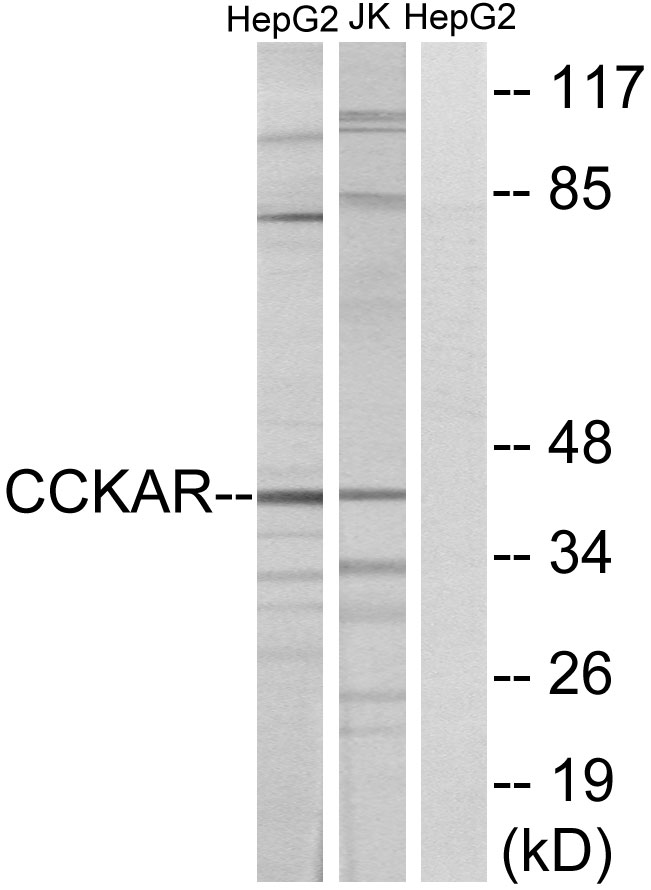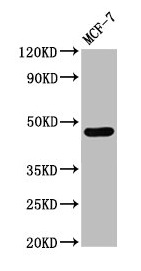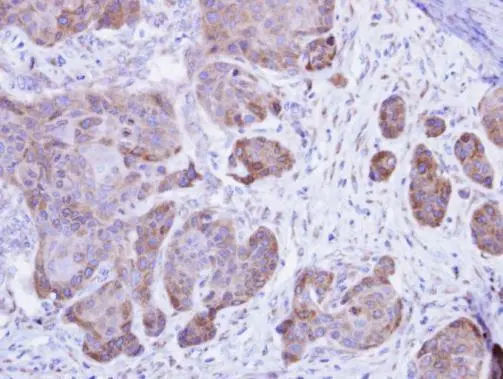![WB analysis of mouse muscle lysate (35ug) using Calsequestrin 2 antibody [AT4E10] at the indicated dilutions. WB analysis of mouse muscle lysate (35ug) using Calsequestrin 2 antibody [AT4E10] at the indicated dilutions.](https://www.genetex.com/upload/website/prouct_img/normal/GTX53693/GTX53693_WB_w_23060900_380.webp)
WB analysis of mouse muscle lysate (35ug) using Calsequestrin 2 antibody [AT4E10] at the indicated dilutions.
Calsequestrin 2 antibody [AT4E10]
GTX53693
ApplicationsWestern Blot, ELISA
Product group Antibodies
ReactivityHuman, Mouse
TargetCASQ2
Overview
- SupplierGeneTex
- Product NameCalsequestrin 2 antibody [AT4E10]
- Delivery Days Customer9
- Application Supplier NoteThe antibody has been tested by ELISA and Western blot analysis to assure specificity and reactivity. Since application varies, however, each investigation should be titrated by the reagent to obtain optimal results. Recommended dilution range for Western blot analysis is 1:1000. Recommended starting dilution is 1:1000
- ApplicationsWestern Blot, ELISA
- CertificationResearch Use Only
- ClonalityMonoclonal
- Clone IDAT4E10
- Concentration1 mg/ml
- ConjugateUnconjugated
- Gene ID845
- Target nameCASQ2
- Target descriptioncalsequestrin 2
- Target synonymsPDIB2, calsequestrin-2, calsequestrin 2 (cardiac muscle), calsequestrin 2, fast-twitch, cardiac muscle
- HostMouse
- IsotypeIgG1
- Protein IDO14958
- Protein NameCalsequestrin-2
- Scientific DescriptionThe protein encoded by this gene specifies the cardiac muscle family member of the calsequestrin family. Calsequestrin is localized to the sarcoplasmic reticulum in cardiac and slow skeletal muscle cells. The protein is a calcium binding protein that stores calcium for muscle function. Mutations in this gene cause stress-induced polymorphic ventricular tachycardia, also referred to as catecholaminergic polymorphic ventricular tachycardia 2 (CPVT2), a disease characterized by bidirectional ventricular tachycardia that may lead to cardiac arrest. [provided by RefSeq, Jul 2008]
- ReactivityHuman, Mouse
- Storage Instruction-20°C or -80°C,2°C to 8°C
- UNSPSC41116161





